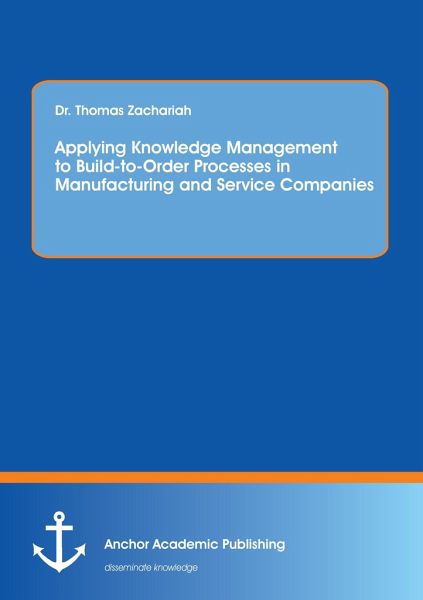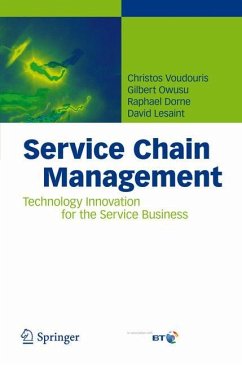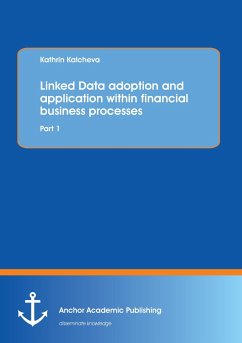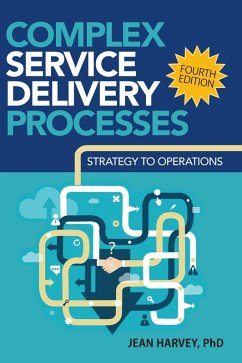
Applying Knowledge Management to Build-to-Order Processes in Manufacturing and Service Companies

PAYBACK Punkte
0 °P sammeln!
Knowledge management differs from expert systems as the latter is more attuned to integrating all available sources of data, information and knowledge into a single, unified system of record. Furthermore, the capturing of tacit and explicit knowledge and its use in streamlining business processes differentiates knowledge management systems from expert systems.The purpose of this study is defining the practical, pragmatic and replicable approaches to knowledge management as it relates to the build-to-order and mass customization strategies of manufacturing and services companies in the United S...
Knowledge management differs from expert systems as the latter is more attuned to integrating all available sources of data, information and knowledge into a single, unified system of record. Furthermore, the capturing of tacit and explicit knowledge and its use in streamlining business processes differentiates knowledge management systems from expert systems.
The purpose of this study is defining the practical, pragmatic and replicable approaches to knowledge management as it relates to the build-to-order and mass customization strategies of manufacturing and services companies in the United States. The overall research question guiding this study is: How is knowledge management being used today to streamline and make more efficient service strategies of manufacturing and services companies? The research is descriptive and empirical in nature because the primary data were collected using the survey method through fact finding technique such as a questionnaire. The results show the integration of increasing role-based knowledge management in the workflow of a company.
From this study, a knowledge sharing maturity model is derived, which illustrates how the level and extent of the exploitation of knowledge in build-to-order and quote-to-order strategies have a long-term impact on the financial performance. Based on these findings, a causal relationship emerges from how a company manages its knowledge in the build-to-order and quote-to-order strategy based on these findings, and they align well to a multi-stage maturity model as a result. One of the main objectives of the study is to determine how the customer churn rate can be reduced. By optimizing business processes, companies can improve increase customer satisfaction while reducing the Days Sales Outstanding levels over time.
The purpose of this study is defining the practical, pragmatic and replicable approaches to knowledge management as it relates to the build-to-order and mass customization strategies of manufacturing and services companies in the United States. The overall research question guiding this study is: How is knowledge management being used today to streamline and make more efficient service strategies of manufacturing and services companies? The research is descriptive and empirical in nature because the primary data were collected using the survey method through fact finding technique such as a questionnaire. The results show the integration of increasing role-based knowledge management in the workflow of a company.
From this study, a knowledge sharing maturity model is derived, which illustrates how the level and extent of the exploitation of knowledge in build-to-order and quote-to-order strategies have a long-term impact on the financial performance. Based on these findings, a causal relationship emerges from how a company manages its knowledge in the build-to-order and quote-to-order strategy based on these findings, and they align well to a multi-stage maturity model as a result. One of the main objectives of the study is to determine how the customer churn rate can be reduced. By optimizing business processes, companies can improve increase customer satisfaction while reducing the Days Sales Outstanding levels over time.













